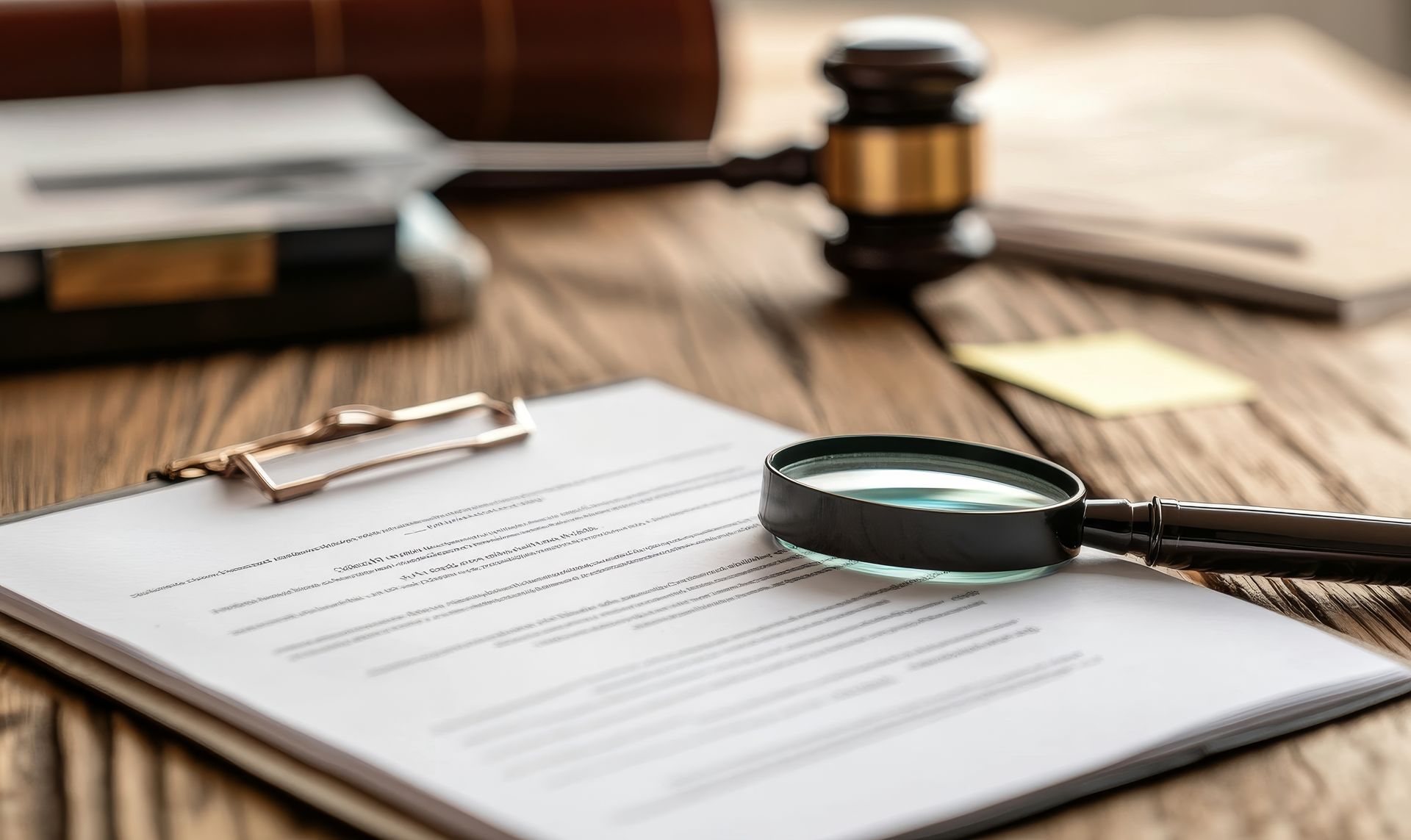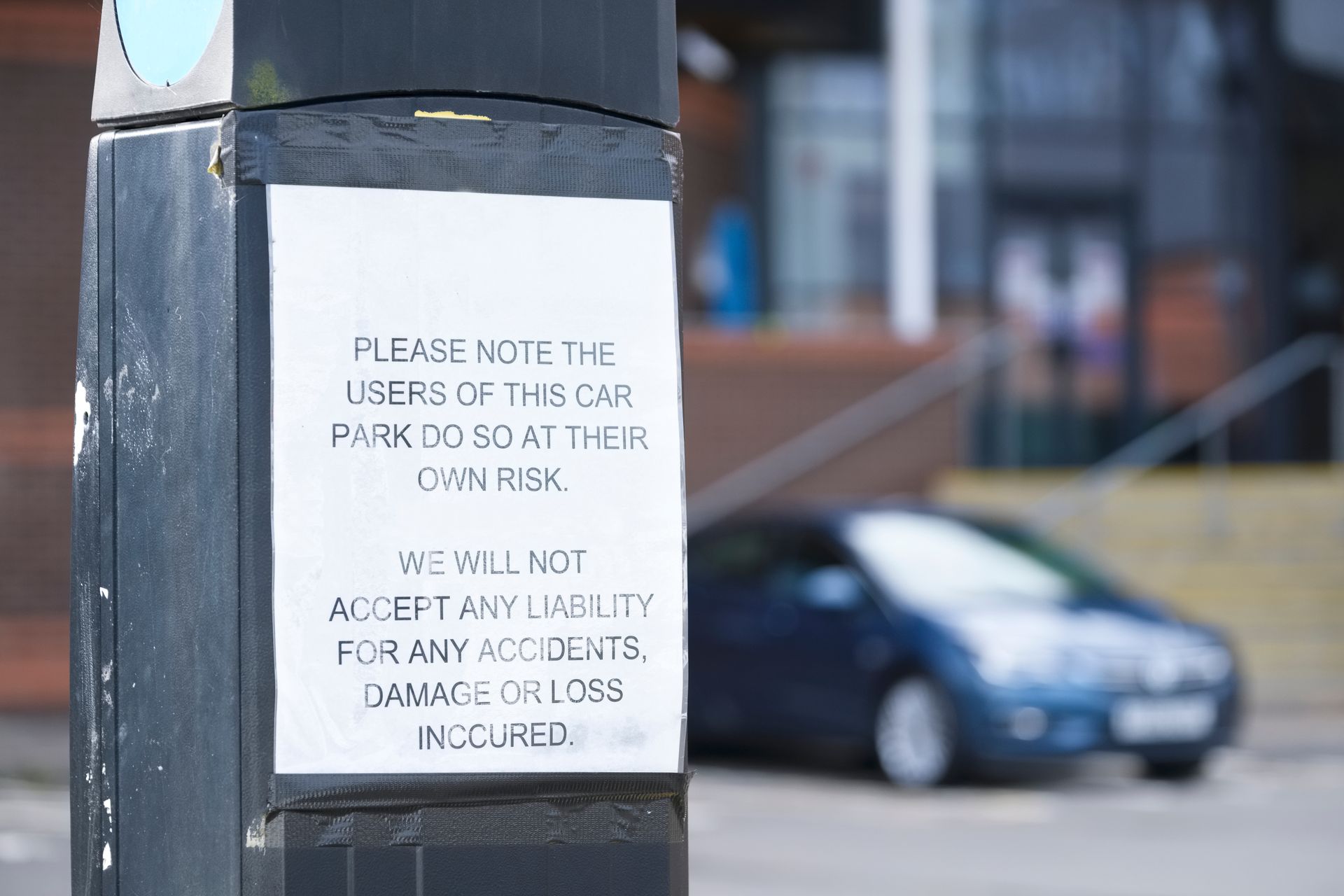Blog

In today's litigious environment, businesses must be prepared to defend themselves against potential personal injury claims. Whether you run a small business or a large enterprise, accidents can happen on your premises, and customers or employees may seek compensation for injuries.
One of the most effective ways to protect your business in the event of a lawsuit is to maintain thorough documentation. Having clear, detailed records can help demonstrate that your business took the necessary precautions to prevent injuries and acted responsibly when an accident occurred.
Proving Compliance with Safety Standards
One of the most common defenses in personal injury claims is proving that your business complied with all relevant safety regulations and industry standards. Proper documentation can demonstrate that your business followed the appropriate safety protocols and conducted regular inspections, which are key factors in preventing injuries.
For example, if a customer slips and falls on your premises, having records that show regular floor inspections and cleaning schedules can be vital in proving that your business took reasonable steps to ensure a safe environment. Similarly, documentation of employee safety training, equipment maintenance, and hazard reports can protect your business from claims that you failed to uphold safety standards.
Without these records, it may be challenging to establish that your business followed the necessary procedures, leaving you vulnerable to liability claims.
Establishing a Timeline of Events
In personal injury cases, plaintiffs often allege that the business was negligent in some way, leading to their injury. Thorough documentation allows you to establish a clear timeline of events, showing exactly what happened before, during and after the incident in question.
For instance, if a customer claims they were injured due to a hazardous condition on your property, maintenance logs or surveillance footage can help establish whether the hazard was unforeseeable and couldn’t have been addressed prior to the injury, or if it had existed long enough that workers should have noticed and remedied the danger. Incident reports, employee statements and witness accounts can also provide valuable insight into what happened at the time of the accident.
Having a clear timeline of events allows your legal team to effectively argue that your business acted reasonably and responsibly, which is essential in personal injury defense cases.
Demonstrating Proper Response to the Incident
When an injury occurs, the way your business responds can significantly impact the outcome of a personal injury claim. If the injured party alleges that your business failed to take proper action after the accident, thorough documentation of your response can help refute that claim.
It is important to document all steps taken after an accident, including administering first aid, contacting emergency services and filing an internal incident report. Employee statements, photographs of the scene and any communication with the injured party should also be documented. This documentation can show that your business responded appropriately and with urgency, demonstrating your commitment to customer and employee safety.
The absence of such documentation can make it more difficult to counter accusations of negligence or inaction.
Reducing the Risk of Fraudulent Claims
Unfortunately, fraudulent personal injury claims are not uncommon. Some individuals may exaggerate their injuries or falsely claim that an accident occurred on your premises to receive compensation. Putting in place a thorough incident documentation process and strictly adhering to it can help protect your business from these types of claims.
For example, surveillance footage, time-stamped records and incident reports can provide hard evidence that contradicts fraudulent claims. In some cases, documented employee and witness statements can discredit an individual’s version of events, helping to prevent a fraudulent lawsuit from progressing.
The more comprehensive your documentation, the easier it becomes to defend your business against false accusations and to show that the plaintiff’s claims are baseless.
Supporting Your Insurance Claim
In addition to defending your business in court, thorough documentation is crucial when filing an insurance claim. Your insurance provider will require detailed records of the incident to process the claim and determine coverage. The better your documentation, the more likely it is that your insurance claim will be approved, helping to cover legal fees, settlements or damages.
Without proper documentation, your insurer may be unable to verify the details of the incident, which could result in a denied or reduced claim. This can leave your business shouldering the financial burden of a personal injury lawsuit.
Providing Evidence in Court
If a personal injury claim escalates to a lawsuit, thorough documentation becomes even more important. During legal proceedings, both sides will present evidence to support their arguments. Having comprehensive documentation allows your legal team to present a strong defense, increasing your chances of a favorable outcome.
In personal injury cases, courts often rely on objective evidence to determine fault. Documents such as maintenance logs, inspection reports, safety protocols, employee training records, and photographs of the scene can all serve as crucial evidence in court. This documentation can demonstrate that your business acted responsibly, complied with safety regulations and took reasonable steps to prevent the accident.
Without this evidence, it becomes much harder to prove your case and defend your business against liability claims.
Our Atlanta Lawyers Are Committed to Fighting for Businesses Facing Liability Claims
If your business is facing a personal injury claim, don’t leave your defense to chance. Reach out to the Law Office of Cameron Hawkins here on our website to schedule your free case evaluation or give us a call at 678-921-4225.











